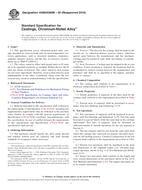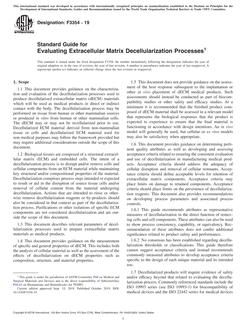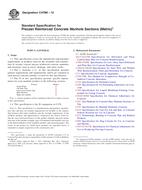1.1 This test method is intended to differentiate, in a preliminary fashion, among materials with respect to their resistance to ignition because of their proximity to electrically heated wires and other heat sources.
1.2 This test method applies to molded and sheet materials available in thicknesses of 0.25 mm (0.010 in.) to 6.4 mm (0.25 in.).
1.3 This test method applies to materials that are rigid at normal room temperatures. That is, the specimen does not deform during preparation including especially the wire-wrapping step described in 8.1. Examples of deformation that render this test method inapplicable include:
1.3.1 Bowing, in either transverse or longitudinal directions, or twisting of the specimen during the wire-wrapping step to a degree visible to the eye.
1.3.2 Visible indentation of the wrapped wire into the edges of the specimen.
1.4 The values stated in SI units are to be regarded as the standard. The inch-pound units given in parentheses are for information only.
1.5 This standard should be used to measure and describe the properties of materials, products, or assemblies in response to heat and flame under controlled laboratory conditions and should not be used to describe or appraise the fire hazard or fire risk of materials, products, or assemblies under actual fire conditions. However, results of this test may be used as elements of a fire risk assessment which takes into account all of the factors which are pertinent to an assessment of the fire hazard of a particular end use .
1.6 This standard does not purport to address all of the safety concerns, if any, associated with its use. It is the responsibility of the user of this standard to establish appropriate safety and health practices and determine the applicability of regulatory limitations prior to use.
Product Details
- Published:
- 10/01/2003
- Number of Pages:
- 4
- File Size:
- 1 file , 39 KB


